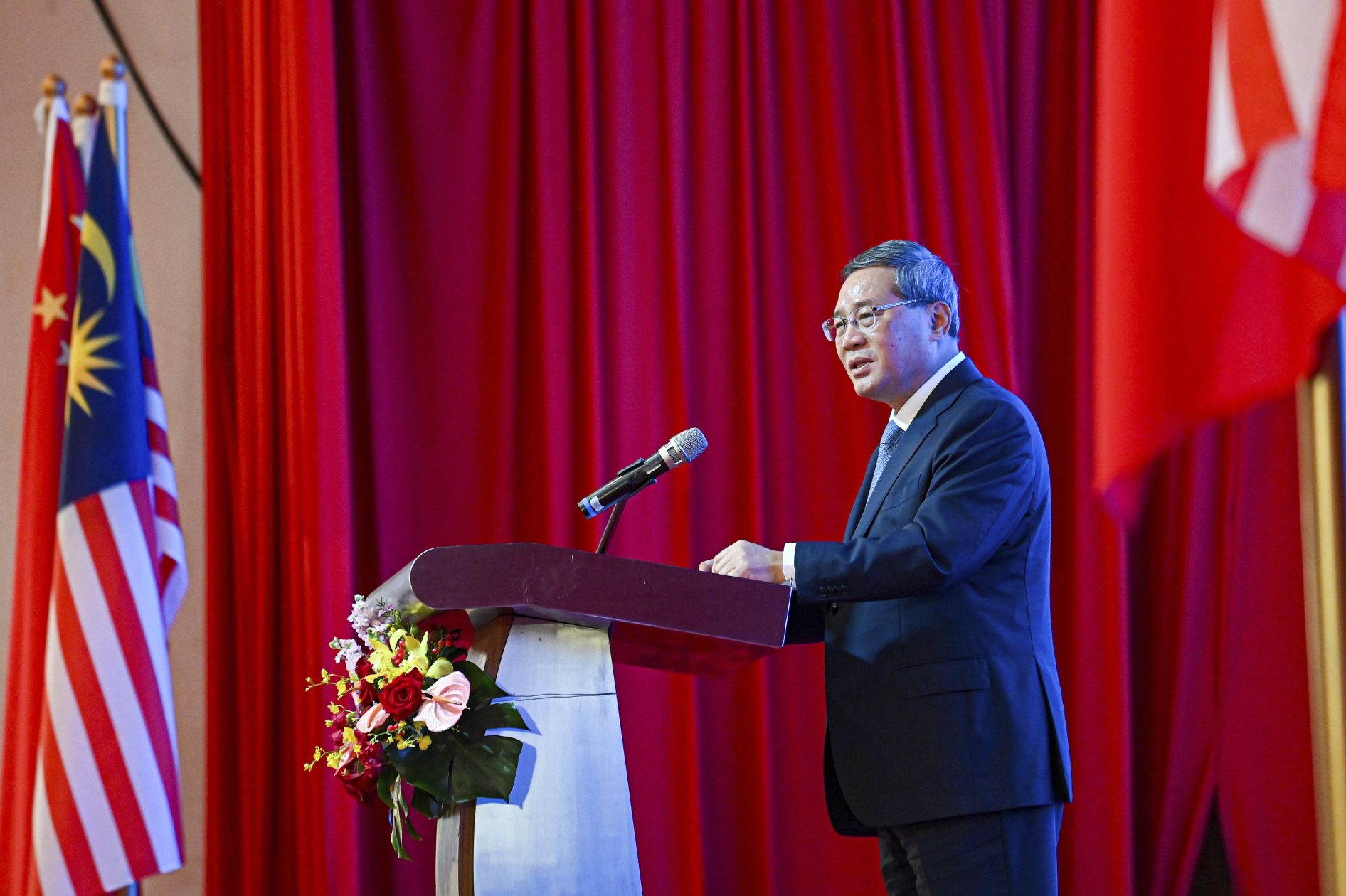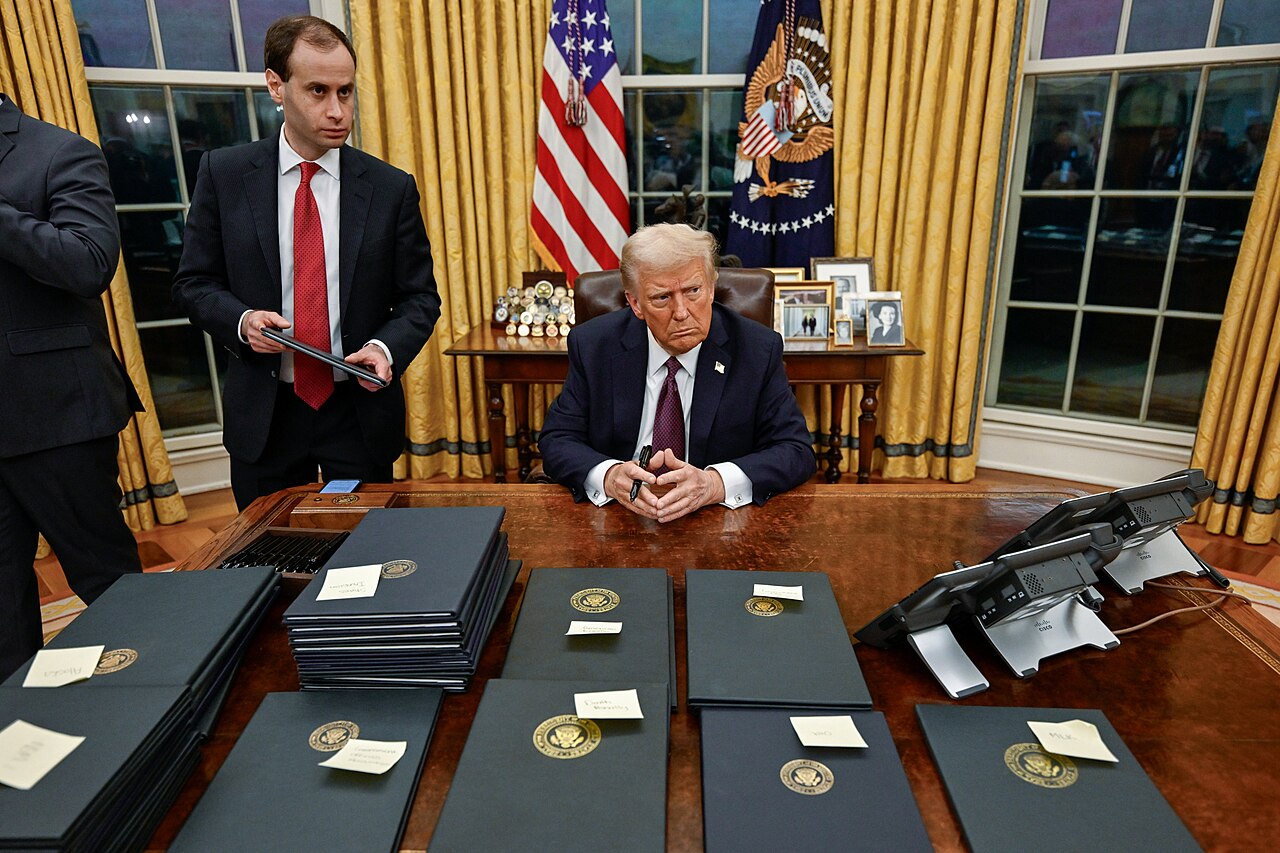End of the Empire is a once-monthly feature on all news relating to the transition from the unipolar world of the US Empire to a multipolar world.
One of the key themes of this column is the coverage of foreign and commercial policies from nations around the world that stress the word “multipolarity,” a deliberate choice of vocabulary to denote opposition to the United States’ unilateral world order.
The entry of the Biden Administration into the White House unveiled a new term in American politics—”rules-based international order” which its members utilize so frequently that Professor Stephen Walt of the Kennedy School of Harvard University described it as “a job requirement for a top position in the US foreign policy apparatus”.
As this article in the Leiden Journal of International Law points out, the use of the “RBIO” (rules-based int. order) comes as a direct substitute for what one would assume should be “international law”. Many other nation-states and their leaders around the world have pointed this out: the US refuses to refer to international law, and instead to a vague, officially-lawless designation of an international “order” governed by “rules”.
This is not semantics, but the rhetorical battleground of two emerging global blocs, reflected well by this headline from the Financial Times. On one side of this very real divide, there are nations that prefer to retain the rights to associate and trade with other nations of their choosing. On the other side, there is a group of nations that prefers to select foreign and trade policies in perfect lockstep in order to be able to influence the world in a way they find beneficial.
“In different ways, the wars in Ukraine and Gaza — as well as the tensions in the South China Sea and the battle for opinion in the Global South — all involve this rhetorical struggle to shape the world order and the power realities that underpin it,” writes Gideon Rachman at the FT.
Indeed, Ukraine was the proving ground in which nations that favored multipolarity made their move, propping up the Russian oil market and refusing to denounce what they recognized as a complex situation involving NATO expansion and Russian security concerns. If Ukraine was the proving ground, Gaza was something even more, as the Global South/Rest of World saw that when it came to wars of aggression, Washington was perfectly happy to rubber stamp what many in the Global South argued at the International Court of Justice amounted to the crime of Genocide as recognized under international law.
These nations point out the US’s refusal comes from the fact that they have no interest in international law and ignore it whenever convenient. Indeed, the US routinely dismisses and has even sanctioned the International Criminal Court, established by the UN’s Rome Statute, and ignored the findings of the International Court of Justice when they ruled on Israel’s crime of genocide. When the UN Security Council voted on resolutions proposed by Washington to attack Iraq in 1990 and again in 2003, the US attacked Iraq regardless.
As a result, those who may have once been on the RBIO bloc’s fringes are more and more breaking away—like Malaysia, where a key node in the US semiconductor supply chain, which is apparently so important that Washington is willing to risk a nuclear war with Beijing to defend its exclusivity, is now increasingly choosing to align with China’s vision of multipolarity and trade.

Killing Muslims
The majority-Muslim Malaysian population is unsurprisingly strongly against the United States backing of the genocidal regime in Tel Aviv.
Large Western franchises like McDonald’s and Starbucks are facing boycotts and vandalism in the middle-income country. The Wall Street Journal found that in a poll of 8,000 people in 16 Arab nations released this year, 76% said their views on the US had become more negative since the Gaza war began
The Prime Minister of Malaysia Anwar Ibrahim, has veered decidedly away from expected policies of working with Washington and toward working with Beijing.
In a speech during the most recent visit to Malaysia by Chinese Premier Li Qiang, the country’s second in command, Ibrahim rejected what he called “incessant propaganda” that Malaysians should fear China’s military and economic might, saying: “I sense the attitude of the Chinese leadership—friendly, courteous, full of respect, understanding of cultures and differences. This is not what is being portrayed elsewhere”.
These are just words, and indeed words that reflect nothing but personal sentiments. However, Ibrahim has also backed those words with something verging on actions. In July, the Prime Minister announced that he had no dispute with China over claims in the South China Sea, and said he didn’t want an “outside power” interfering in the Asian matter.
Most significantly, he said that his policy was for Malaysia to join BRICS—the ultimate statement regarding which side of the rhetorical divide one resides. BRICS, an association of nations loosely based around removing barriers to trade, has stated policy goals that include diminishing the role of the US dollar in world economic transactions, offering a path of development that doesn’t conform to the demands of wealthier nations, and circumventing “unilateral coercive measures” or sanctions, imposed by Washington on an astonishing third of all world nations.
Malaysia also issued stronger language in support of China’s position on Taiwan, something that roused US officials to issue a statement saying it was concerning. Further still, Malaysia lauded Beijing’s position as a regional mediator when Li Qiang hosted a council of Palestinian leaders that ended with them uniting behind a single slate of positions during future negotiations with Israel, reminiscent of the breakthrough made last year when Beijing mediated a restoration of official relations between Iran and Saudi Arabia.
Hardly ever found arguing for those on the multipolarity side of the rhetorical divide, an article from Chatham House, a UK think tank with ties to London’s security establishment, also identifies that the RBIO will not, with its current reputation, survive the onslaught in Gaza, such is the rank hypocrisy on display by Washington and others.
“For generations, the rules-based international order has been woefully inadequate in dealing justly with the Middle East’s most important and long-standing conflict,” wrote Dr. Renad Mansour a Senior Research Fellow at the think tank’s Middle East and North Africa Program. “If it publicly fails once again, by proving incapable of agreeing an end to the unprecedented bloodshed in Gaza, it will further undermine the world’s faith in the institutions that were built to serve it, and possibly contribute to its complete unraveling”. WaL
We Humbly Ask For Your Support—Follow the link here to see all the ways, monetary and non-monetary.
PICTURED ABOVE: Destroyed building in Gaza, October 2023. PC: Palestinian News & Information Agency CC 3.0.



